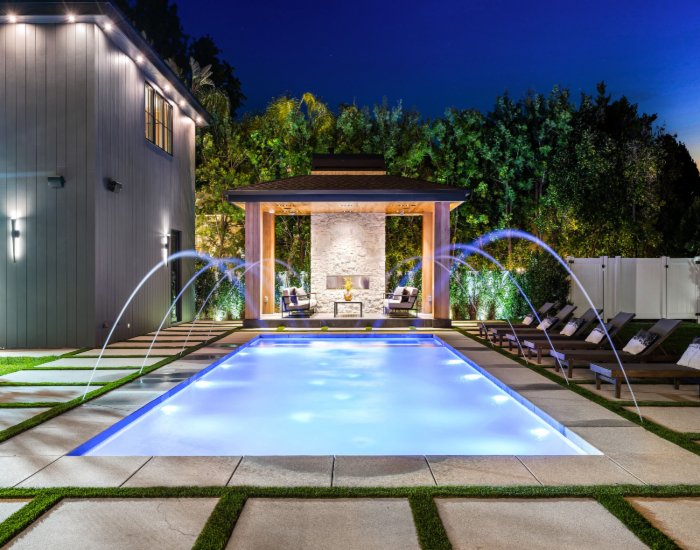Saltwater Chlorination: Everything You Need to Know
Saltwater Chlorination: Everything You Need to Know
Saltwater pools have become increasingly popular, both for residential and commercial use. Understanding how a saltwater chlorination system works, along with its advantages, disadvantages, health benefits, and maintenance requirements, can help you decide if this system is right for your pool. Read on to learn more about saltwater chlorination, from the benefits to helpful tips.
How Does a Saltwater Chlorinator Work and What Does It Do?
A saltwater chlorinator, also known as a saltwater chlorination system, is a device that converts salt into chlorine to disinfect pool water. There are saltwater chlorinators for above-ground pools as well as in-ground pools. This system eliminates the need for adding traditional chlorine directly to the pool. Here’s how it works:
- Salt Addition: Salt is added to the pool water, creating a saline solution.
- Electrolysis Process: The water passes through the saltwater chlorinator unit, where an electrolysis process occurs. This process splits the salt (sodium chloride) into chlorine and sodium.
- Chlorine Production: The chlorine produced through electrolysis is in the form of hypochlorous acid, which is an effective disinfectant. This chlorine sanitizes the pool water by killing bacteria, algae, and other contaminants.
- Recycling: The chlorine eventually reverts back to salt, allowing the process to continue in a cyclical manner with minimal additional salt needed.
Saltwater chlorinators can be used for both residential pools and larger commercial installations, such as a commercial saltwater swimming pool chlorinator, ensuring water remains clean and safe for swimmers.
What Advantages and Disadvantages Do Saltwater Pools Have?
Advantages
- Lower Maintenance Costs: Over time, the cost of maintaining a saltwater pool can be lower than traditional chlorinated pools, as the system continuously produces chlorine.
- Softer Water: The water in saltwater pools is gentler on your skin and eyes compared to traditional chlorine water, reducing irritation.
- Consistent Chlorine Levels: The automated process maintains consistent chlorine levels, enhancing pool water quality.
- Environmental Impact: Saltwater pools use less chemical chlorine, which can be better for the environment.
Disadvantages
- Initial Cost: The initial cost of installing a residential or commercial saltwater chlorinator is higher than that of traditional chlorine systems.
- Complexity: Saltwater chlorinators require regular monitoring and maintenance to ensure they function properly.
- Corrosion: Salt can be corrosive to certain pool materials and equipment, necessitating the use of salt-resistant components.
- Electricity Use: The chlorination process requires electricity, potentially increasing utility bills.
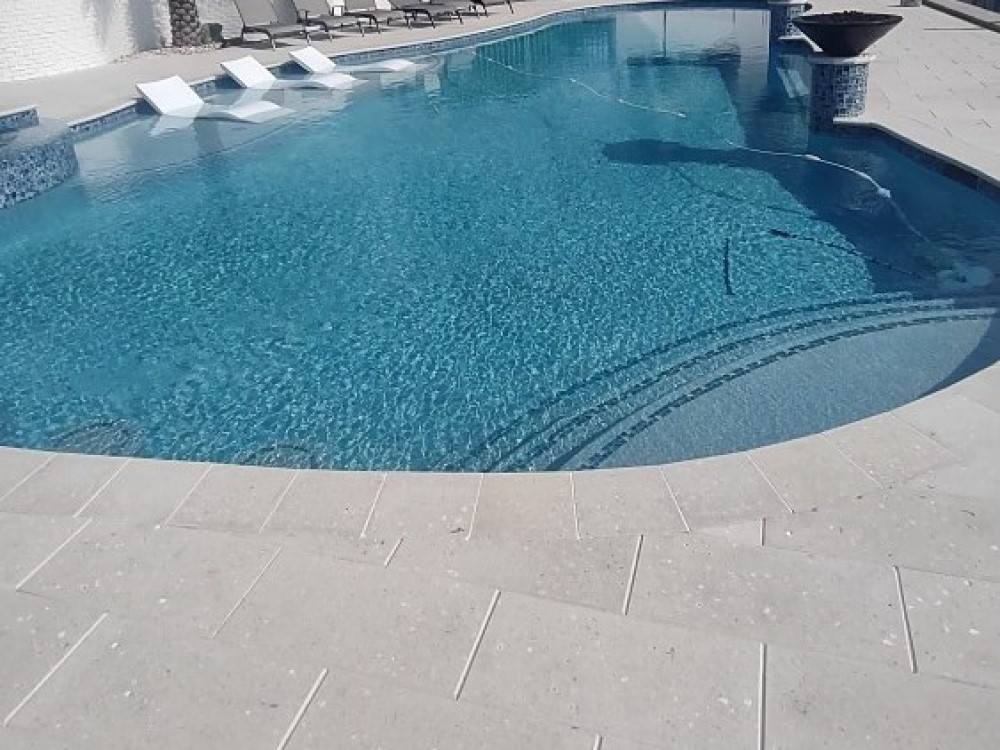
Saltwater Pools for Health
Saltwater pools offer several health benefits over traditional chlorine pools:
- Reduced Chemical Exposure: Swimmers are exposed to lower levels of chlorine, reducing the risk of skin and eye irritation and respiratory issues.
- Therapeutic Benefits: Saltwater can have therapeutic effects, such as soothing skin and reducing inflammation.
- Natural Feel: The water feels more natural and less harsh, providing a more enjoyable swimming experience.
How to Maintain the Saltwater Chlorinator
Saltwater chlorination offers many benefits, but there are common issues to be aware of. One frequent problem is the buildup of calcium deposits, which can clog the chlorinator cell and reduce efficiency. Corrosion of pool equipment and surfaces can also occur due to high salt levels. Additionally, improper maintenance can lead to an imbalance in pool chemistry, causing problems like cloudy water or algae growth. Users may also experience sensor malfunctions or cell degradation over time, requiring regular inspection and cleaning. Here’s a guide to maintaining a commercial saltwater chlorinator or any residential system:
- Regular Cleaning: The cell where electrolysis occurs can build up with calcium and other minerals, requiring regular cleaning. Follow the manufacturer’s instructions to clean the cell, typically every 3 to 6 months.
- Salt Levels: Monitor and maintain the appropriate salt levels in the pool. The ideal concentration is usually between 2,500 and 3,500 parts per million (ppm). Too low or too high salt levels can affect the chlorinator’s efficiency.
- Inspect Components: Regularly inspect the chlorinator and pool equipment for signs of wear or corrosion. Replace any damaged parts promptly to prevent further issues.
- Water Chemistry: Make sure to test the pool water regularly to make sure the pH, alkalinity, and chlorine levels are properly balanced. Adjust as needed to maintain balanced water chemistry.
- Winterization: If you live in an area with freezing temperatures, follow the manufacturer’s guidelines for winterizing the saltwater chlorination system to prevent damage.
Install Your Saltwater Chlorinator with Coastal Luxury Outdoors
Saltwater pool chlorination is a modern, efficient, and user-friendly solution for maintaining clean and safe pool water. To make the most of these systems, it’s important to understand their operation, benefits, and maintenance needs. At Coastal Luxury Outdoors, serving Jacksonville, Florida, we bring over 40 years of excellence in crafting custom backyard experiences, making sure that your pool is a source of relaxation and enjoyment. Whether you need a chlorinator for a residential or commercial pool, our team ensures you receive the highest quality products and service. Contact us online or at 904-543-2626 today to learn how we can help you achieve a pristine, comfortable swimming environment.
Recent Blog Articles
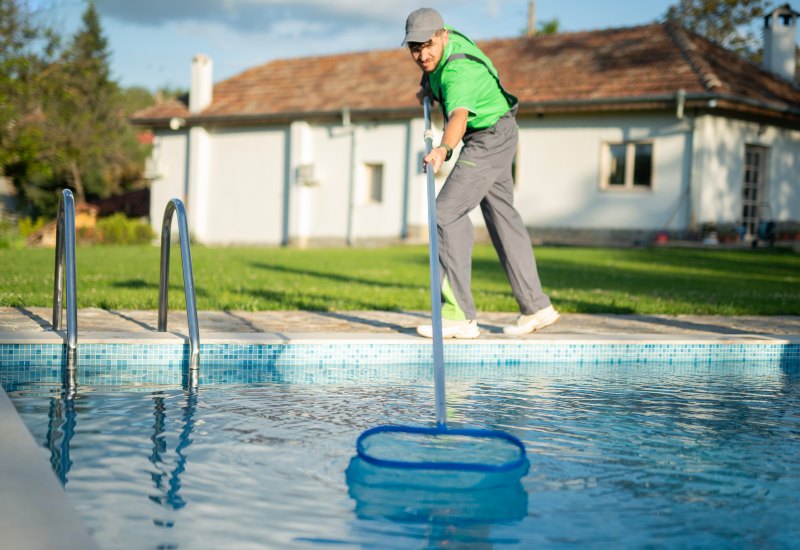
7 Reasons to Hire a Pool Service Company
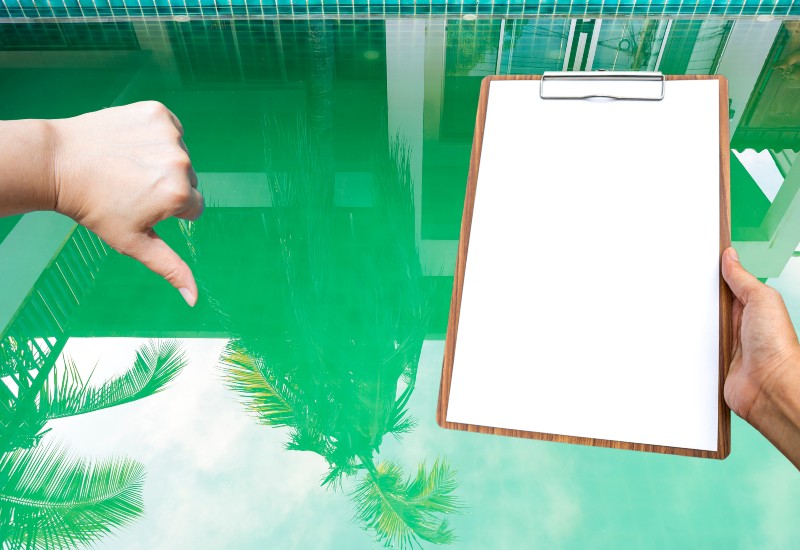
Common Swimming Pool Problems and How to Solve Them
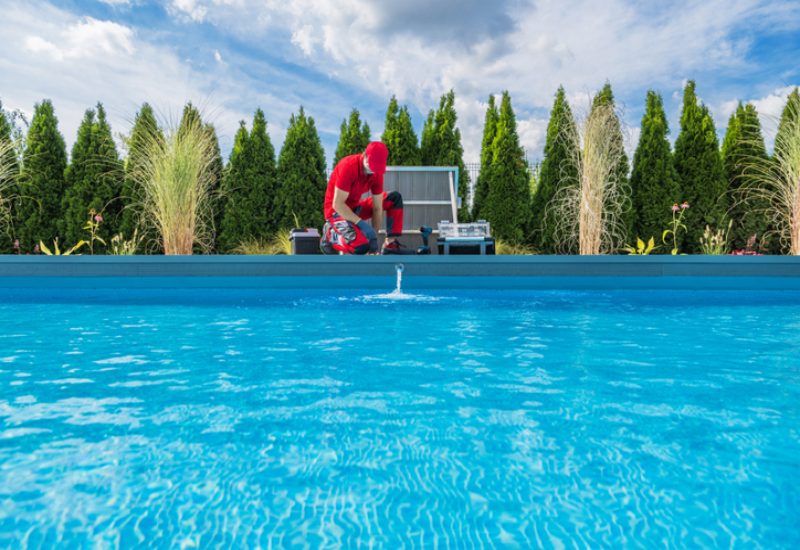
Maintaining Your Pool During a Jacksonville Winter

How Much Does It Cost to Build a Pool in Florida (Price Guide)
